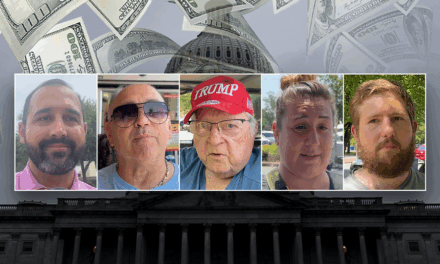A school district in New York is currently embroiled in a legal battle concerning its mascot, the ‘Spartans’. The lawsuit claims that this symbol is associated with white supremacy, which has ignited a broader debate about the appropriateness of certain mascots in educational institutions across the country.
The controversy centers around the use of the ‘Spartans’ name and imagery as part of the district’s branding and athletic programs. Critics have argued that the symbol, which has historical roots in classical antiquity, has been misappropriated to project ideals that do not align with modern values of inclusivity and equality.
Individuals advocating for the lawsuit contend that using the ‘Spartans’ name perpetuates a problematic narrative. They assert that throughout history, classical symbols have often been co-opted by various extremist groups to bolster their own ideologies and agendas, effectively twisting their meanings in a manner that fosters division and hate.
Opponents of the mascot, representing a coalition of parents, educators, and community leaders, have voiced their concerns during public forums. During these events, they detailed how the imagery and name associated with ‘Spartans’ can sometimes set a tone that alienates students, particularly those of minority backgrounds. Supporters of the mascot counter that it represents strength, resilience, and teamwork, emphasizing that it serves as a rallying point for school spirit and pride.
The school district has thus far remained steadfast in its decision to retain the ‘Spartans’ mascot. Administrators believe that the vast majority of the community views the symbol positively, relating it to athletic achievement and a storied history of school tradition. In their defense, they argue that changing mascots can create more discord than harmony, especially when many alumni and students feel deeply attached to the legacy represented by the name.
Legal experts have indicated that this lawsuit could serve as a tipping point in a growing national conversation about the appropriateness of mascots across the country. Schools and sports teams are increasingly reassessing their symbols, particularly as conversations and movements regarding racial equity and social justice gain momentum.
In recent years, various educational institutions and sports franchises have opted to retire mascots that have drawn criticism for being racially insensitive or offensive. The most prominent cases primarily revolve around Native American-themed mascots, but as seen with this lawsuit, the scrutiny is extending to other historical symbols and names.
Supporters of the lawsuit assert that symbols can have different meanings for different people. For some, the imagery might evoke admiration for ancient warriors, while for others, it might resonate as a reminder of the toxic ideologies that some groups have misused in the past. This divide represents a critical juncture that educational institutions must navigate as they strive to create environments that are inclusive and welcoming to all students.
The lawsuit’s outcomes could set a significant precedent regarding how educational institutions handle mascots that are under scrutiny. Lawyers representing the plaintiffs emphasize the importance of community feedback in these situations. They argue that mascots should reflect the values of the community and the principles of inclusivity that should speak to all students.
While the legal battle unfolds, the school district has announced plans to hold a series of community discussions aimed at engaging stakeholders in dialogue about the mascots’ implications. Officials hope to gather input from a cross-section of the student body, parents, educators, and local residents to gauge opinions on the mascot and its relevance in today’s social climate.
The discussions are expected to be intense, with passionate voices on both sides advocating for their beliefs. As seen in other districts facing similar debates, the conversations could pivot quickly from a focus on the mascot itself to broader themes of equity, representation, and historical context.
Nationwide, communities have taken different approaches to mascots, with some opting for a complete overhaul of branding policies, while others choose to stand firm in their traditions. The diversity in responses speaks volumes about the complexities of cultural representation and legacy in modern America. As symbols continue being transformed in the wake of evolving societal values, the conversations that spark from them are equally essential for setting directions for a school’s community identity.
This lawsuit may continue to escalate, prompting more educational districts to reassess their own mascots, leading to a ripple effect throughout the nation. Many school officials are now carefully monitoring this situation, realizing that the outcome might influence other mascot-related cases in the future.
In light of the lawsuit, various academic experts are emphasizing the need for schools to focus on education and the social implications of their mascots. They advocate for school districts to actively engage in educating their student bodies about the historical contexts of these mascots and to ensure that discussions surround them are constructive and centered on empathy and understanding.
Additionally, some advocates suggest that schools should consider adopting elements of community input into their branding and mascots; they argue that inclusive representation can lead to decisions that better reflect the community’s values and ideals. They urge that listening to varying perspectives on mascots can only enhance the school culture and foster an environment of respect.
Going forward, stakeholders within the New York school district will need to approach this situation delicately, aiming to create space for dialogue that bridges community divisions. The ultimate goal should be a collaborative effort to foster an environment that celebrates school spirit while also ensuring that it is rooted in a commitment to equity and inclusivity.
As the case develops, one thing remains clear: the conversation surrounding mascots, like the one embroiled in this lawsuit, spans far beyond school pride and athletics. It is a dialogue reflecting the evolving norms of our society and its values, shaping the future of how we understand representation, history, and the shared experiences of all students in our schools.
































